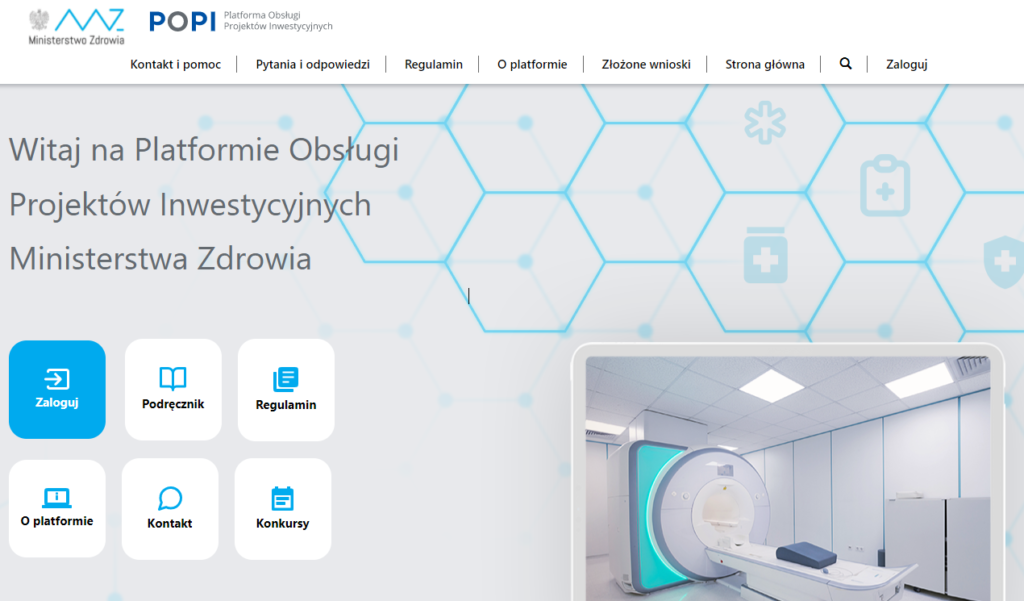New Innovative Polish Platform for handling investment projects launched by the Polish Ministry of Health (abbreviated POPI for short)

Purpose of existence
The main task of the Polish Platform for Handling Investment Projects (POPI) is fast and accurate implementation of broadly understood investment projects, which is (as the Polish Ministry of Health maintains) one of the most important activities of the Ministry of Health. In order to bypass many entities that would be involved in the implementation of a given investment, the Ministry of Health brought to life the POPI platform, which automated the above-mentioned process and thus facilitated navigation in the area of investment projects and increased the number of investment projects implemented in the area of health. The platform for servicing investment projects of the Polish Ministry of Health is a place bringing together entities that are directly involved in the process of launching investment projects. As part of this platform, entities can apply for funds for any investment co-financed by the Ministry of Health. Additionally, the POPI platform can function as a place where applications are assessed, and the given investments are monitored and settled. It should also be remembered that mutual contact regarding the implementation of specific investments is also part of POPI.
The Investment Project Support Platform (POPI) is available at the following address:
It is also important that in order to fully use the POPI platform, it is required to set up an account through a certified profile, and to submit the application with the use of a qualified electronic signature.
What can POPI enable?



